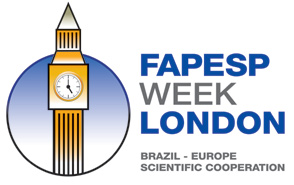FAPESP seeks to expand global scientific collaboration
The mechanisms created by FAPESP to enable collaboration between scientists from São Paulo and other countries were highlighted by Carlos Henrique de Brito Cruz, FAPESP scientific director, at the opening of FAPESP Week London 2013.
By Fernando Cunha, in London
Agência FAPESP – The mechanisms created by FAPESP to enable collaboration between scientists from São Paulo and other countries were highlighted by Carlos Henrique de Brito Cruz, FAPESP scientific director, at the opening of FAPESP Week London 2013.
The symposium, which runs through September 27, is being held at the Royal Society, with support from the British Council and the Brazilian Embassy in London.
Foreign researchers can apply for post-doctorate fellowships and grants to Young Investigators for 2 and 3-year periods, and the Foundation’s program for visiting researchers accepts stays by scientists from other countries at São Paulo research institutions for periods that range from two weeks to up to 12 months. Other forms of support are available through the São Paulo School of Advanced Science (SPSAS) that may receive between 50 and 100 foreign researchers, and the São Paulo Excellence Chairs (SPEC) Program, designed to attract notable Brazilian scientists whose activities are outside of Brazil, for periods ranging from three months to three to five years.
Cooperation with the United Kingdom “The United Kingdom is a special place because we have very special agreements with British universities and with the Research Councils, the RCUK,” said Brito Cruz.
The researchers involved in the collaborative efforts draft the proposals and divide up the stages of project development. “FAPESP and British institutions also work together to select peer reviewers charged with evaluation, and we follow the procedures of each party when making our selections,” said the FAPESP scientific director.
“We have a good number of projects underway with the RCUK - the Biotechnology and Biological Sciences Research Council (BBSRC), the Natural Environment Research Council(NERC), the Medical Research Council (MRC), and the Economic and Social Research Council (ESRC), and we are working on proposals within the scope of the Arts and Humanities Research Council (AHRC) and the Engineering and Physical Sciences Research Council (EPSRC),” he said.
FAPESP also has agreements with universities in the United Kingdom that offer resources to encourage researchers to develop research proposals and submit them to FAPESP and the Research Council related to the project area. “Workshops and all kinds of exchanges can be arranged for this,” said Brito Cruz.
During FAPESP Week London, new collaborative efforts were announced with the Imperial College and the University of Manchester.









